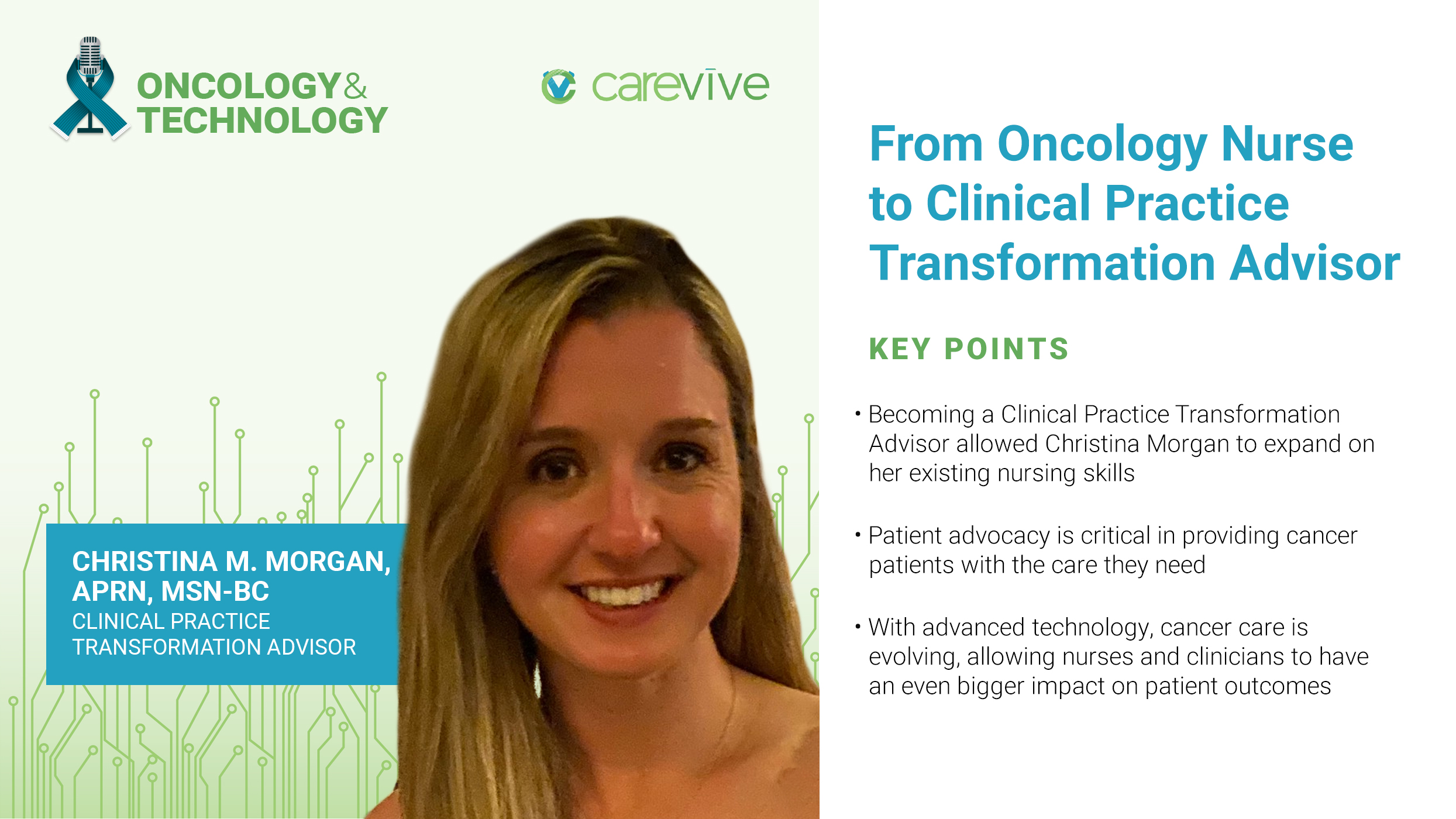
Carevive at ONS Congress 2022 with April Boyd, Drace Langford, and Reesa Sherin
Key points:
- Becoming a Clinical Practice Transformation Advisor allowed Christina Morgan to expand on her existing nursing skills
- Patient advocacy is critical in providing cancer patients with the care they need
- Cancer care is evolving allowing nurses and clinicians to have an even greater impact on patient outcomes with advanced technology
Notes
A career change can often come with uncertainty for the future, but for Christina Morgan, APRN, MSN-BC, Clinical Practice Transformation Advisor at Carevive, it gave her a voice to advocate for cancer patients helping them receive the highest quality of care. Oncology and Technology host Tyler Kern sat with Morgan to discuss her transition from the field of nursing to clinical practice.
Morgan’s journey began after she graduated from nursing school. “I decided to go right into oncology, and I worked as an oncology nurse at a medical center for a few years. We handled everything from initially diagnosed patients to handling symptom management and even end of life care,” she said. “It really was a spectrum working with the cancer oncology population.”
Wanting to educate herself further, Morgan’s path led her to the University of Central Florida (UCF) where she worked as a nurse practitioner in neuro-oncology helping lymphoma patients, and people with brain tumors and other neurologic disorders.
“I realized I really wanted to provide care in a way that was a little bit more advanced than what I was doing. I want to be able to diagnose and treat people, to work with physicians, and to do things on a higher level, which going to UCF allowed me to do,” Morgan said.
Now as a clinical practice transformation advisor at Carevive, her background allows her to have a clinical perspective. “Being in the medical community, not only over the decade but also being with the pandemic over the last two years, has shown me how much cancer patients need the right care and the right people advocating on their behalf,” she said.
Cancer never hits anyone at the right time but having the resources and information to make decisions is key, Morgan explained.
“I think there is a correlation that I can bring, not only to Carevive but to patients because I understand what they’re going through and I think, at the end of the day, that’s all we ever want to do is advocate for patients that are going through difficult and challenging situations,” she said. “But working with a company that is making the life of a cancer patient so much easier,
means a lot. It takes work and we do have to make the effort and at Carevive I know we’re doing that.”
